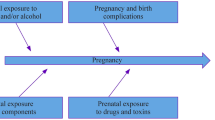Abstract
Genetic factors play a major role in the etiopathogenesis of attention-deficit/hyperactivity disorder (ADHD). In this study, we aimed to investigate the relationship between the CDH13 (rs6565113, rs11150556) and LPHN3 (rs6551665, rs6858066, rs1947274, rs2345039) gene polymorphisms and ADHD. We also sought to examine possible relationships between these polymorphisms and the clinical course and treatment response in ADHD. A total of 120 patients (79% boys), aged 6 to 18 years, newly diagnosed (medication-naïve) with ADHD according to the DSM-5 and a group of 126 controls (74% girls) were enrolled in the study. We examined the association between the aforementioned polymorphisms and ADHD. Univariate and multivariate logistic regression analysis were used to evaluate factors influencing the treatment response of ADHD. A significant difference was found between ADHD and control groups in terms of genotype distribution of the LPHN3 rs6551665 and rs1947274 polymorphisms. The results also showed that having the GG genotype of rs6551665 and CC genotype of rs1947274 of the LPHN3 gene was associated with risk for ADHD, and this relationship was more prominent in male participants. In the multivariate logistic regression model established with variables shown to have a significant relationship with treatment response, the presence of the GG genotype of the LPHN3 rs6551665 polymorphism and high severity of ADHD assessed by CGI-S were associated with poor response to treatment. This study is the first study to investigate the relationship between ADHD and these polymorphisms among Turkish adolescents. Our results imply that the LPHN3 rs6551665 and rs1947274 polymorphisms have a significant effect on ADHD in a Turkish population, and support previous observations that the presence of the GG genotype of the LPHN3 rs6551665 polymorphism may be associated with poor response to treatment in ADHD.
Similar content being viewed by others
References
Acosta MT et al (2016) ADGRL3 (LPHN3) variants are associated with a refined phenotype of ADHD in the MTA study. Mol Genet Genomic Med 4:540–547. https://doi.org/10.1002/mgg3.230
Adamo N, Seth S, Coghill D (2015) Pharmacological treatment of attention-deficit/hyperactivity disorder: assessing outcomes. Expert Rev Clin Pharmacol 8(4):383–397. https://doi.org/10.1586/17512433.2015.1050379
American Psychiatric Association (2013) Diagnostic and statistical manual of mental disorders (DSM-5®). American Psychiatric Pub, Arlington. https://doi.org/10.1176/appi.books.9780890425596
Arcos-Burgos M et al (2004) Attention-deficit/hyperactivity disorder in a population isolate: linkage to loci at 4q13. 2, 5q33. 3, 11q22, and 17p11. Am J Hum Genet 75(6):998–1014. https://doi.org/10.1086/426154
Arcos-Burgos Á et al (2010) A common variant of the latrophilin 3 gene, LPHN3, confers susceptibility to ADHD and predicts effectiveness of stimulant medication. Mol Psychiatry 15(11):1053–1066. https://doi.org/10.1038/mp.2010.6
Arias-Vásquez A et al (2011) CDH13 is associated with working memory performance in attention deficit/hyperactivity disorder. Genes Brain Behav 10(8):844–851. https://doi.org/10.1111/j.1601-183X.2011.00724.x
Bonvicini C, Faraone S, Scassellati C (2016) Attention-deficit hyperactivity disorder in adults: a systematic review and meta-analysis of genetic, pharmacogenetic and biochemical studies. Mol Psychiatry 21:872–884. https://doi.org/10.1038/mp.2016.74
Brose N, Rosenmund C, Rettig J (2000) Regulation of transmitter release by Unc-13 and its homologues. Curr Opin Neurobiol 10(3):303–311. https://doi.org/10.1016/s0959-4388(00)00105-7
Bruxel EM et al (2015) LPHN3 and attention-deficit/hyperactivity disorder: a susceptibility and pharmacogenetic study. Genes Brain Behav 14:419–427. https://doi.org/10.1111/gbb.12224
Busner J, Targum SD (2007) The clinical global impressions scale: applying a research tool in clinical practice. Psychiatry (Edgmont) 4(7):28–37
Choudhry Z, Sengupta SM, Grizenko N, Fortier ME, Thakur GA, Bellingham J, Joober R (2012) LPHN3 and attention-deficit/hyperactivity disorder: interaction with maternal stress during pregnancy. J Child Psychol Psychiatry 53(8):892–902. https://doi.org/10.1111/j.1469-7610.2012.02551.x
Dereboy Ç, Şenol S, Şener Ş, Dereboy F (2007) Conners Kısa Form Öğretmen ve Ana Baba Derecelendirme Ölçeklerinin Geçerliği. Türk Psikiyatri Derg 18:48–58
Eichel K, von Zastrow M (2018) Subcellular organization of GPCR signaling. Trends Pharmacol Sci 39(2):200–208. https://doi.org/10.1016/j.tips.2017.11.009
Ercan ES, Bilaç Ö, Özaslan TU, Rohde LA (2015) Is the prevalence of ADHD in Turkish elementary school children really high? Soc Psychiatry Psychiatr Epidemiol 50(7):1145–1152. https://doi.org/10.1007/s00127-015-1071-9
Faraone SV, Perlis RH, Doyle AE, Smoller JW, Goralnick JJ, Holmgren MA, Sklar P (2005) Molecular genetics of attention-deficit/hyperactivity disorder. Biol Psychiatry 57(11):1313–1323. https://doi.org/10.1016/j.biopsych.2004.11.0243
Faraone SV, Bonvicini C, Scassellati C (2014) Biomarkers in the diagnosis of ADHD—promising directions. Curr Psychiatr Rep 16:497. https://doi.org/10.1007/s11920-014-0497-1
Franke B, Neale BM, Faraone SV (2009) Genome-wide association studies in ADHD. Hum Genet 126(1):13–50. https://doi.org/10.1007/s00439-009-0663-4
Gökler B, Ünal F, Pehlivantürk B, Kültür EÇ, Akdemir D, Taner Y (2004) Okul Çaği Çocuklari İçin Duygulanim Bozukluklari ve Şizofreni Görüşme Çizelgesi-Şimdi ve Yaşam Boyu Şekli-Türkçe uyarlamasinin geçerlik ve güvenirliği. Çocuk ve Gençlik Ruh Sağliği Dergisi 11:109–116
Gomez-Sanchez CI et al (2016) Attention deficit hyperactivity disorder: genetic association study in a cohort of Spanish children. Behav Brain Funct 12:2. https://doi.org/10.1186/s12993-015-0084-6
Gomez-Sanchez CI et al (2017) Pharmacogenetics of methylphenidate in childhood attention-deficit/hyperactivity disorder: long-term effects. Sci Rep 7:10391. https://doi.org/10.1038/s41598-017-10912-y
Greven CU, Richards JS, Buitelaar JK (2018) Sex differences in ADHD. In: Banaschewski T (ed) Oxford textbook of attention deficit hyperactivity disorder. Oxford University Press, Oxford, p 154. https://doi.org/10.1093/med/9780198739258.003.0016
Güney E, Ceylan MF, İşeri E (2014) Dikkat eksikliği hiperaktivite bozukluğunda aday gen çalışmaları. Psikiyatride Guncel Yaklasimlar-Curr Approaches Psychiatr 3:664–682. https://doi.org/10.18863/pgy.334547
Hawi Z, Tong J, Dark C, Yates H, Johnson B, Bellgrove MA (2018) The role of cadherin genes in five major psychiatric disorders: a literature update. Am J Med Genet B Neuropsychiatr Genet 177(2):168–180. https://doi.org/10.1002/ajmg.b.32592
Hazell PL, Kohn MR, Dickson R, Walton RJ, Granger RE, van Wyk GW (2011) Core ADHD symptom improvement with atomoxetine versus methylphenidate: a direct comparison meta-analysis. J Atten Disord 15(8):674–683. https://doi.org/10.1177/1087054710379737
Huang X, Zhang Q, Gu X, Hou Y, Wang M, Chen X, Wu J (2019) LPHN3 gene variations and susceptibility to ADHD in Chinese Han population: a two-stage case-control association study and gene-environment interactions. Eur Child Adolesc Psychiatry 28:861–873. https://doi.org/10.1007/s00787-018-1251-8
Hwang IW, Lim MH, Kwon HJ, Jin HJ (2015) Association of LPHN3 rs6551665 A/G polymorphism with attention deficit and hyperactivity disorder in Korean children. Gene 566(1):68–73. https://doi.org/10.1016/j.gene.2015.04.033
Jain M et al (2012) A cooperative interaction between LPHN3 and 11q doubles the risk for ADHD. Mol Psychiatry 17:741–747. https://doi.org/10.1038/mp.2011.59
Kaufman J et al (1997) Schedule for affective disorders and schizophrenia for school-age children-present and lifetime version (K-SADS-PL): initial reliability and validity data. J Am Acad Child Adolesc Psychiatry 36(7):980–988. https://doi.org/10.1097/00004583-199707000-00021
Kemner JE, Starr HL, Ciccone PE, Hooper-Wood CG, Crockett RS (2005) Outcomes of OROS® methylphenidate compared with atomoxetine in children with ADHD: a multicenter, randomized prospective study. Adv Ther 22:498–512. https://doi.org/10.1007/BF02849870
Kieling C, Genro JP, Hutz MH, Rohde LA (2010) A current update on ADHD pharmacogenomics. Pharmacogenomics 11(3):407–419. https://doi.org/10.2217/pgs.10.28
Krain AL, Castellanos FX (2006) Brain development and ADHD. Clin Psychol Rev 26(4):433–444. https://doi.org/10.1016/j.cpr.2006.01.005
Labbe A, Liu A, Atherton J, Gizenko N, Fortier ME, Sengupta SM, Ridha J (2012) Refining psychiatric phenotypes for response to treatment: contribution of LPHN3 in ADHD. Am J Med Genet B Neuropsychiatr Genet 159B:776–785. https://doi.org/10.1002/ajmg.b.32083
Lange M et al (2012) The ADHD-susceptibility gene LPHN3. 1 modulates dopaminergic neuron formation and locomotor activity during zebrafish development. Mol Psychiatry 17:946–954. https://doi.org/10.1038/mp.2012.29
Langenhan T (2020) Adhesion G protein–coupled receptors—candidate metabotropic mechanosensors and novel drug targets. Basic Clin Pharmacol Toxicol 126(Suppl. 6):5–16. https://doi.org/10.1111/bcpt.13223
Lasky-Su J et al (2008) Genome-wide association scan of quantitative traits for attention deficit hyperactivity disorder identifies novel associations and confirms candidate gene associations. Am J Med Genet B Neuropsychiatr Genet 147B(8):1345–1354. https://doi.org/10.1002/ajmg.b.30867
Manolio T et al (2007) New models of collaboration in genome-wide association studies: the genetic association information network. Nat Genet 39:1045–1105. https://doi.org/10.1038/ng2127
Mowlem FD, Rosenqvist MA, Martin J, Lichtenstein P, Asherson P, Larsson H (2019) Sex differences in predicting ADHD clinical diagnosis and pharmacological treatment. Eur Child Adolesc Psychiatr 28:481–489. https://doi.org/10.1007/s00787-018-1211-3
Myer N, Boland J, Faraone S (2018) Pharmacogenetics predictors of methylphenidate efficacy in childhood ADHD. Mol Psychiatry 23(9):1929–1936. https://doi.org/10.1038/mp.2017.234
Neale BM et al (2010) Meta-analysis of genome-wide association studies of attention-deficit/hyperactivity disorder. J Am Acad Child Adolesc Psychiatry 49(9):884–897. https://doi.org/10.1016/j.jaac.2010.06.008
O’Sullivan ML, de Wit J, Savas JN, Comoletti D, Otto-Hitt S, Yates JR 3rd, Ghosh A (2012) FLRT proteins are endogenous latrophilin ligands and regulate excitatory synapse development. Neuron 73:903–910. https://doi.org/10.1016/j.neuron.2012.01.018
Owens EB et al (2003) Which treatment for whom for ADHD? Moderators of treatment response in the MTA. J Consult Clin Psychol 71(3):540–552. https://doi.org/10.1037/0022-006x.71.3.540
Patel SD, Chen CP, Bahna F, Honig B, Shapiro L (2003) Cadherin-mediated cell–cell adhesion: sticking together as a family. Curr Opin Struct Biol 13(6):690–698. https://doi.org/10.1016/j.sbi.2003.10.007
Poelmans G, Pauls DL, Buitelaar JK, Franke B (2011) Integrated genome-wide association study findings: identification of a neurodevelopmental network for attention deficit hyperactivity disorder. Am J Psychiatry 168(4):365–377. https://doi.org/10.1176/appi.ajp.2010.10070948
Polanczyk G et al (2008) The impact of individual and methodological factors in the variability of response to methylphenidate in ADHD pharmacogenetic studies from four different continents. Am J Med Genet B Neuropsychiatr Genet 147B(8):1419–1424. https://doi.org/10.1002/ajmg.b.30855
Ribasés Á et al (2011) Contribution of LPHN3 to the genetic susceptibility to ADHD in adulthood: a replication study. Genes Brain Behav 10(2):149–157. https://doi.org/10.1111/j.1601-183X.2010.00649.x
Rivero O, Sich S, Popp S, Schmitt A, Franke B, Lesch K-P (2013) Impact of the ADHD-susceptibility gene CDH13 on development and function of brain networks. Eur Neuropsychopharmacol 23(6):492–507. https://doi.org/10.1016/j.euroneuro.2012.06.009
Salatino-Oliveira A et al (2015) Cadherin-13 gene is associated with hyperactive/impulsive symptoms in attention/deficit hyperactivity disorder. Am J Med Genet B Neuropsychiatr Genet 168B(3):162–169. https://doi.org/10.1002/ajmg.b.32293
Song J et al (2014) Association of SNAP-25, SLC6A2, and LPHN3 with OROS methylphenidate treatment response in attention-deficit/hyperactivity disorder. Clin Neuropharmacol 37:136–141. https://doi.org/10.1097/WNF.0000000000000045
Takeuchi T, Misaki A, Liang SB, Tachibana A, Hayashi N, Sonobe H, Ohtsuki Y (2000) Expression of T-cadherin (CDH13, H-cadherin) in human brain and its characteristics as a negative growth regulator of epidermal growth factor in neuroblastoma cells. J Neurochem 74(4):1489–1497. https://doi.org/10.1046/j.1471-4159.2000.0741489.x
Thapar A, Cooper M, Rutter M (2017) Neurodevelopmental disorders. Lancet Psychiatry 4(4):339–346. https://doi.org/10.1016/S2215-0366(16)30376-5
Willcutt EG (2012) The prevalence of DSM-IV attention-deficit/hyperactivity disorder: a meta-analytic review. Neurotherapeutics 9(3):490–499. https://doi.org/10.1007/s13311-012-0135-8
Willson J et al (2004) Latrotoxin receptor signaling engages the UNC-13-dependent vesicle-priming pathway in C. elegans. Curr Biol 14(15):1374–1379. https://doi.org/10.1016/j.cub.2004.07.056
Acknowledgments
We would like to thank the Gazi University Scientific Research Projects Department and the children and their families for participating in the study on a voluntary basis.
Funding
This research was supported by Gazi University Scientific Research Projects (project code no: 01/2018-17, 2018).
Author information
Authors and Affiliations
Corresponding author
Ethics declarations
All procedures performed in studies involving human participants were in accordance with the ethical standards of the institutional and/or national research committee and with the 1964 Helsinki declaration and its later amendments or comparable ethical standards. This study procedure was reviewed and approved by the Clinical Research Ethics Committee of Keçiören Training and Research Hospital in accordance with the article 2012- KAEK-15/1580 dated 10.01.2018.
Conflict of Interest
The authors declare that they have no conflict of interest. The funding sources had no role in the study design, in the interpretation of data, or in the writing of the manuscript.
Additional information
Publisher’s Note
Springer Nature remains neutral with regard to jurisdictional claims in published maps and institutional affiliations.
Rights and permissions
About this article
Cite this article
Özaslan, A., Güney, E., Ergün, M.A. et al. CDH13 and LPHN3 Gene Polymorphisms in Attention-Deficit/Hyperactivity Disorder: Their Relation to Clinical Characteristics. J Mol Neurosci 71, 394–408 (2021). https://doi.org/10.1007/s12031-020-01662-0
Received:
Accepted:
Published:
Issue Date:
DOI: https://doi.org/10.1007/s12031-020-01662-0




